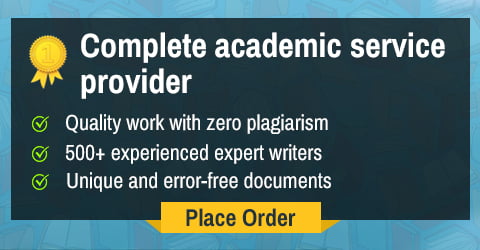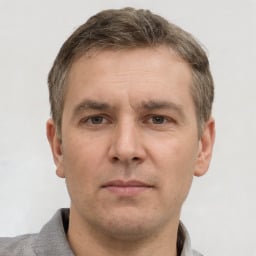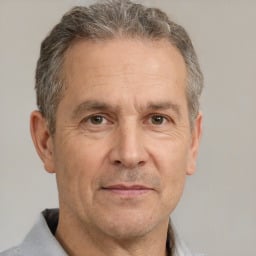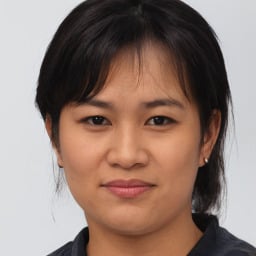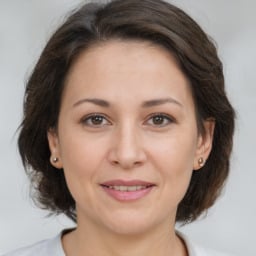Question :
It is compulsorily required for an individual to learn something new to achieve better professional life thus this unit aims for student to gain new skills to become a confident employee. This module assists the learner to be a confidant so as to achieve better growth in their own personal and professional life.
- Determine the role of self-managed learning to encourage lifelong development.
- Develop the ability to be responsible for its own personal and professional development.
- Construct an effective personal and professional development plan
- Explain learned interpersonal and transferable skills.
Answer :
INTRODUCTION
Personal and professional development helps an individual to grow and enhance their skills. By learning from different sources and technique a person can develop unique skills and knowledge can also increase the knowledge area. This help in achieving desired success and achieve all aims of life. The organisation wants highly talented and skilled candidates which can double their profits and expand their business into new markets (McNiff, 2010). As candidates help them in achieving business with their ultimate goals and vision, it is necessary to become efficient enough to become part of such a company. This assignment will enlighten the scenario of Travelodge Hotel. This hotel is very famous and is the second-largest hotel chain in the United Kingdom. They are operating in various countries such as Spain, New Zealand, Asia etc. The main aim of this project is to identify various learning benefits, approaches, concepts for effective learning that help in accomplishing aims and objective in a proper manner. It will also enlighten self-managed learning, lifelong learning and skill evaluation.
TASK 1
1.1 Evaluation of self managed learning approach
The best way to learn something is to first analyse current needs and what's going on in the business environment. This is the only reason to learn right things in effective manner.; There are different ways where I can learn different things and implement my learning within my hotel to make activities more effective.
Seminars and conferences : These are the most efficient way for self managed learning as this is the best place where people from different backgrounds share their innovative and creative ideas, opinions, advices, suggestions ion different topics, etc (Moon, 2013). This help in learning new things and help me to know more about different things. By attending business conferences, I can improve my management skills and develop my personality. This will help me to improve condition of my hotel.
Social networks : This is best way to get to know people and to get socialize with them. This may include virtual and local community like Facebook, Twitter, etc. and other community which are internet based. Here, people share their knowledge and information through bulletin boards and different forums. This is an effective way to learn different things from people and share their ideas with others through communication and by interaction with them.
Internet : This is the most effective way to learn vast variety of things as it includes worldwide knowledge at one stop. There are many business related sites where various professional have given their views. Internet basically allows people to surf information which is written by others. Through these data and information, I can learn new things and develop my skills and personality. With this tool, I can also adopt unique styles and theories; which could be helpful for my hotel. They also include experiences and ideas of successful business persons, form there I can take their ideas and can implement in my hotel.
Mentoring: Mentoring is basically relationship oriented where there is one mentor and another one is mentee who learn different things under the guidance of mentor. It is a long process and requires time. It is necessary to build trust between mentor and mentee as this will initiate effective learning.
Interviews: It is an effective process to learn something new and different thing. By reading and taking interview, a person will come to know about other person to whom interviewing is done.
Bulletin boards: Organisation uses bulletin boards in order to share critical information with the staff.; They are effective source for communicating public messages and employees will come to know about that information.
Newsgroup: It is an online discussion forum accessible through Usenet. It mainly contains discussion on different and new topic.
1.2 Purpose of increase lifelong learning method
Lifelong learning process includes continuous learning by oneself and that may include personal analysis such as strength, weakness, opportunities and strength, in short SWOT Analysis. By performing self analysis, I can know where I am lacking and can increase my skills and knowledge area that will ultimately help me to grow and build confidence (Elliott, 2011). It will also improve my communication and relationship with my staff members and superiors.
It is quite a necessary task to first analyse my strength, weakness, opportunities and threats and then analyse what are the current needs and requirements for me in Travelodge Hotel. As I am assistant manager and I should be proficient enough at all my tasks and activities.
Personal strategy: If I am to my way of personal development and self learning, then is have to first strategize my learning process and then complete each targets one by one. In order to increase knowledge area, I can read more books, newspaper, magazines, etc. In order to improve my soft skills and management skills, for that I can refer journals and articles written by different professionals and business persons. I can also get classes to improve my technical skills. These all will help me to improve my personal and will make me a better person. This will ultimately beneficial for my hotel as I can not effectively guide my subordinates.
Personal and professional development plan: As mentioned above, I need to make a plan and prioritize different tasks according to my needs. It is necessary for me to develop both personal and professional skills as both play crucial parts in life. Professional and personal skills will be needed while performing activities at the hotel because it included interaction with management and with colleges. For proper development, I will analyse current need which I am lacking and can improve as soon as possible in order to maintain my position in hotel. I can set short as well as long term targets and slowly complete each targets. This training and development procedures will encourage my morale and motivation level and now I can face world with more confidence.
Continuous Professional Development: It provides a framework for learning and developing activities which contributes towards individual's effectiveness as a professional. Continuity is very important in CPD because learning does not stop and is a continuous process. This is an effective approach for me as I can update my knowledge and skills on existing and new areas of practice and can also keep professional qualification up to date. Travelodge Hotel provides leaning activities so that employees as well as employers can learn different ways through which tasks could be achieved. This approach will build up their confidence level and will perform their duties more efficiently. The undertaking of CPD in context of an hospitality organisation assures that customers are served in an improved manner resulting high repetition of sales.
1.3 Benefits of self managed learning
There are several benefits of self managed learning. As I was capable enough to learn different things from my own, it has benefited me at various stage of my life (Zepeda, 2012). With self manager learning, I have improved various skills like problem solving, communication, leadership and listening skills. Now, I have become more capable to perform my duties and effectively handle my work with my subordinates. It has increased my strength and I can face any problem and challenge coming to me. Following are some more benefits:
Benefits to self:
- It has helped me to increase my confidence and morale level.
- It gave me the confidence to attend and interact with different business delegates and customers in proper manner.
- I have learnt different skills involving problem solving, listening, leadership skills, etc.
- I have become more capable to perform my duties and handle my responsibilities in more effective manner.
- Now I am able to guide and direct my employees in better manner and this has result in greater profitability.
Benefits to organisation -
- As I am the manager and I have to represent my business in outer world, so if I have to be effective enough and represent a strong image of my hotel in front of others, this will create a better image of my hotel in the market and thus will be more preferred by visitors and customers.
- This will help my company to attract large number of customer and it will result in more profits to company.
- This increases the efficiency and productivity of my hotel.
- As a capable manager, my hotel can give tough competition to other competitors.
- Better handling of employees and creating healthy environment within organisation.
TASK 2
2.1 Evaluation of skills
Self managed is an important thing that need to determined person skills and abilities with the help of assessment of individual skills and abilities (Reeves, 2012). This will help in maintaining such people ability who will identify appropriate performance in the large competitive market place. The self evaluation skills that will assist in identifying an individual who will stand at the competitive period of time.
| PROFESSIONAL SKILLS | PRESENT LEVEL (1= poor, 2= weak, 3= average, 4= good and 5 = excellent) | BEST EXAMPLE | TOOLS TO IMPROVE |
| Communication skills | 3 | Appropriate communication are required for completing all the data and information in better way. It is necessary for doing regular interactions among employees and other staff members. Along with this, it is required for employees is to provides effective information to their customers.;; | This skill can be improved by attending effective seminars and conferences where they need to listen with concentration. |
| Leadership skills | 3 | It is important skills that will help in conducting effective work in proper manner. In this, leadership skill can help in reaching with desired targets and objectives in appropriate way. This is necessary for company leader is to perform work for getting correct results to an organisation.; | For maintaining leadership abilities, firm can provides conferences and seminars which assist them in enhancing their skills and knowledge for effective performance.; Along with this, it will aid in learning whole team administration skills and also know; how to take all individual targets and objectives. |
| Problem solving skills | 3 | It is that ability and skill which is important for resolving major difficult issues and problems and also assist in giving accurate possible solution in effective way. Problem solving skill can aid in eliminating all disputes and conflicts within an enterprise (Brody and Hadar, 2011). As a manager, I require to solve such main issue and problem that will arise within an organisation. It is that skill which can assist in resolve major issues and problems within an enterprise and such ability has been facing various issues that can be faced by people.; | It is the best technique and method that can assist in improving effective skills and abilities which take some time to resolve huge disputes so this will help in sharpen; their people mind and they are capable for resolving major issues and problems in better manner. |
| Listening skills | 4 | This is an essential skill that can help in improving their listening skills and abilities and this will provides best possible solution that they require to reach with future time period. | For increasing listening skill, an individual should do meditation for concentrate on their mind in better way. This will also help in maintaining and improving various conditions. |
2.2 Own development needs and activities
It is necessary for an individual is to recognise their strength and weaknesses due to this they can easily reach with such set goals and targets in proper manner (Kumari, 2011). SWOT analysis will assist in getting brief data and information that are described as under:
Strength– My strengths are, I am good with handling customers and providing them what they need, good in handling employees and directing them in proper direction. More strengths includes, I have good communication skills and perform all my duties with discipline and also maintain healthy environment within hotel.
Weaknesses-; For this, a person require to know regarding such factors and they have to do work to overcome with this type of conflicts. ;Apart from my strengths, I have certain weaknesses and they are, I am weak in handling critical situations and cannot handle pressure effectively.
Opportunities- Opportunities are the chances for me to grow and develop my skills and knowledge in better manner. As I am manager in highly reputed hotel and hence I have many options in other hotels where I can switch my job and grow. There are many opportunities for which I can opt for. By better learning and skills development, I can increase my chances.
Threat- If there are opportunities, then threats are associated with it. If I am a manager in a hotel, there must be bunch of other managers who are more capable then me and can get better opportunities then me.
2.3 Advance opportunities for meeting present and future needs
It become difficult sometime to identity development opportunities in order to meet current and development need (Avalos, 2011). One of the major development opportunity is to set targets and after setting those goals, I have developed my skills and frame it: S (Specific) M (Measurable)A (Achievable) R (Realistic) T (Time targeted).
By developing skills and knowledge, I can manage my work in more effective manner and can resolve different matters easily. It will help me to grow and progress in future and will able to face challenges. To improve, I have to attend different business seminars, conferences, etc. From where I can learn different things and increase my skill. This will be beneficial for my hotel.
By learning communication skill within 8 months, I can easily interact with customers efficiently and fluently. I can address critical information to employees in proper manner. As I am learning leadership skill, I am becoming more capable to direct and guide employees in right manner and this result in better outcomes and results.
2.4 Personal and professional development plan
Short Term Plan (1 Year)
| What | How | When(Start date) | When (End date) | Review |
| To become expert in Excel | Video oriented lessons, expert help by software professional, practice on daily basis. | 24/01/18 | 24/01/19 | It is necessary for me to learn Excel in order to record relevant information related to employees, customers, etc. |
| Team development skills | Expert advice, professional trainings, study experiences and articles of successful managers. | 01/02/18 | 01/12/19 | This is a necessary approach to increase my efficiency as a manager. |
Medium Term Plan (2 – 3 Years)
| What | How | When (Start date) | When (End date) | Review |
| PhD in business administrations. | Taking classes in reputed college. | 05/01/18 | 31/12/21 | It will increase my knowledge level and my soft and hard skills. |
| Language training | Lectures with professional, you tube tutorials. | 02/05/18 | 24/10/20 | It will help me to interact with people and clients; who speak different languages. |
Long Term Plan
| What | How | When (Start date) | When (End date) | Review |
| Senior manager in MNC | Improving my skills with time and adapting necessary talents. | 20/10/18 | 25/04/20 | Greater opportunities in future can be grabbed by increasing the efficiency of my skills and knowledge. |
| Leadership skills | By studying different journal written by experts, listening to experts, learning about different leadership styles. | 24/10/18 | 30/06/20 | This will enhance my opportunity as a leader in future.; |
TASK 3
3.1 Process and activities required to implement development plan
In order to implement best development plan, it will be requiring assistance of some activities and processes. Systematic planning play crucial role for leading and managing development plan in effective manner (Croft and et. al., 2010). Some of them are discussed below:
- By implementing problem solving skill, organisation can resolve their problems easily and in effective manner.
- By better development, company can achieve all their targets and goals in efficient manner. As there are several opportunities in outer world and to grab those, development is required.
- Key performance indicator: By applying KPI, company can effectively achieve its key targets and objectives. Travelodge Hotel implement KPI in order to ensure the accomplishment of various objectives and goals. The performance indicators with the implementation of development plan will be the objectives which I have formed during the plan. KPI helps me to target and achieve my goals and objectives within time limit. This keeps me on track and follow my development plan properly. The appreciation from the superior will be considered as a indicator for ideal performance in context of professional development. This increases my performance with time and it become easier for me to focus on my goals.
- SMART Objectives: I have set my future goals and objectives that are specific in nature and are measurable. I have set appropriate timing for each goals and achievable.
- Time scale: By scheduling goals with proper time, I can learn new things and also achieve my goals. Sometimes, better time scale leads to early accomplishment of objectives.
- Review: Reviewing is a crucial factor which requires going through all the goals and their requirements several times as this provide information related to not achieved and extent of achievement of goals, etc.
- Intervention: in context of development plan, supervisor is provided with a right to intervene in my activities and tasks so that correction can be carried out along with overcoming derivation from the plan formed.
3.2 Development activities as plan
It requires systematic planning and process to formulate plan in right manner. Following are some activities which is to be implemented in the plan and are mentioned below:
Communication skills: This skill is very important as this is primary requirement because this allow to interact with customers and with employees in effective manner (Brody and Hadar, 2011). From my development plan, I have improved my communication skills and now I am fluent enough in many languages and can interact with anyone smoothly and effectively.
Problem solving skills: This skills help in resolving different problem arising in the organisation. I have improved my problem solving skills over some period of time. With my hard work and efforts I have completed my learning and now I am able to take better decisions at the time of conflicts.
Team building: With this skill, employees can work together to achieve common goals of organisation in proper manner. This is an efficient skill which should be present in a manager. As I am the manager, so it is necessary for me to develop good teams which can work towards the achievement of company's goals and common targets. With my development plan, I have learnt the meaning and importance of team building.
With better preparations of plans, best outcomes can be achieved and this will benefit both, organisation as well as the employees.
| SKILL | DEVELOPMENT LEVEL | TIME |
| Leadership skill | Beginner level | 2 months |
| Software skill ( Expertise in Excel) | Intermediate level | 5 months |
| Communication skill | Advanced level | 8 months |
3.3 Personal learning in context for goal and objectives
Every person have different style to learn something. After knowing my style, I can easily learn better. I can set my SMART objectives and with self managed learning I can accomplish them and develop my skills and abilities. SMART objectives stands for,; S (Specific) M (Measurable)A (Achievable) R (Realistic) T (Time targeted).
By critically evaluating, I can record my learnings and achievement which will help me while preparing modified plan for further development. With all learnings and development, I have become a better person, got new skills and talents that provide me with ultimate confidence (Mwalongo, 2011).
Following are the SMART Objectives that I have accomplished:
- Specific: I have devised my development plan in effective manner so that I can learn several things in short period of time. With this plan, I have learnt many skills which are necessary for me to improve. First I established, what skills I want to learn, why it is important for me to learn and what resources will be required by me to learn that skill.
- Measurable: It is necessary for me to measure and track my goals in order to stay motivated and focused. I have to track my progress and see how much is left to achieve.
- Achievable: I have developed my realistic and achievable goals which I can achieve in some period of time. In this I have to focus on, how I can achieve this goal?
- Relevant: All goals set by me are relevant and necessary for me to improve as this has increased my confidence level and open up various opportunities for me.
- Time bound: I have set each goal with a deadline. This motivates me to achieve that goals in specified time limit.
I have set different goals and objectives which I have to accomplish in given time in order to increase my efficiency and knowledge. I have taken guidance and directions from experts and professionals, so that I can adapt new skills and learn something new within set time period. After some months, I have reviewed my own development and noticed that, I am lacking behind in some goals which I set, such as team development and language skills, I need to cope up with my goals in order to achieve in time. I am achieving one goal before the time period and that is communication skill and will be able to learn it quickly.
3.4 Improvement plan after assessment
Following is the improvement plan after assessment of feedbacks given by different people:
| LEARNING OBJECTIVES | CURRENT PROFICIENCY | TARGET PROFICIENCY | DEVELOPMENT OPPORTUNITIES | TIME SCALE/ REMARK |
| Communication skills | Improved | To achieve organisational goals and objectives. | It has developed opportunities for development in future. | Nil |
| Problem solving skills | Improving | Goals will be achieved in sometime. | Can get more knowledge related to problem solving skills. | 1 Month |
| Listening skills | Improved | Results are; accomplished | It was accomplished within time. | Nil |
| Technological skills | Improved | Got objectives done | Technical skills will improve with time. | Nil |
TASK 4
4.1 Solutions to work based problems
There are several problems which keeps on arising in the organisation. As Travelodge Hotel is facing major problem of high labour turnover, in that case they are not able to provide their best services to their customers. Due to this problem, their image in deteriorating in the hotel industry and customers are leaving their hotel because of dissatisfaction (Bauer, 2010). As a assistant manager of Travelodge Hotel, I have to analyse the reasons why my hotel is facing high turnover and I found out several reasons to this and they are excessive workloads, low morale of staff, low employee motivation, mental health issues, ineffective communication, etc.
As staff is not able to meet its criteria and are unable to perform their duties properly, now I have suggested some solutions to this wok problem and it is mentioned below:
Reward System: Managers can develop reward system and offer different and attractive rewards to employees who perform well in their duties (Maskit, 2011). This will increase employee's motivation and confidence level and they will tend to perform better next time.
Encourage communication: Employees are not communicating and interacting with each other and due to this they are not able to communicate important details to each other. For that managers can organise several activities in which every employee can participate together and communicate with each other (Lago, 2010).
Training and development: By providing proper training programs, managers can increase employee's knowledge and skills and this will lead to proper functioning of business operations. With effective working, there will be less chances of conflicts and disputes. Training can be provided to individual on personal and professional grounds as well with which they are able to react to each other conforming with the ethical standards.
Team working: Managers can encourage employees to work as a team towards achievement of goals. Team work increases trust and understanding between employees and thus will lead to less conflicts and problems. The values which are underpinned in a team assures that better performance outcomes are achieved.
4.2 Styles of communication at various levels
As Travelodge Hotel is facing high turnover rates due to above mentioned reasons and required immediate attention of superiors to improve and reduce the turnover. As there is very bad communication between different levels of organisation and therefore it requires urgent improvement. Travelodge Hotel is known for providing best customer services to their customers and now they are not able to provide them with best of their services. This is happening due to there is no proper communication between departments (Nofziger and et. al., 2010). As a assistant manager, I will suggest different communication styles which can be followed within organisation premises in order to improve present scenario. Some of them are mentioned below:
Assertive style: Travelodge Hotel can opt this style so that employees can easily express themselves and share their feelings, desires, ideas and feelings, etc (Gibson, Dollarhide and Moss, 2010). With this style of communication, employees can easily give their opinions and advocate for their rights and needs without violating other's rights.
Passive – aggressive style: This style is not used by Travelodge Hotel, in this employee may be passive from outside but from inside they are really aggressive. If any employees opt this style, the he might feel incapable of dealing directly with the objects of their resentments (Desimone, 2011). This is not followed in the hotel as this can worse the present condition.;
Passive style:; Employee using this type of communication act in different manner. Generally passive communicators fails to express their feelings, needs, desires and ask other to express themselves (Sutherland, Howard and Markauskaite, 2010). This style can be used in some cases at different levels of organisation where managers are communicating their subordinate needs to higher authority and with this they can communicate employees needs to superiors present at higher level.
Verbal communication: This is one of the effective way to interact with each other. This involves communication with words and more verbal communication will lead to increase in productivity.
Non verbal communication: This is another effective communication methods. This involves gestures, body languages, facial expression, etc (Black and Plowright, 2010). This is an informal way to communicate feelings and emotions.
Emotive style: People whose dominant style of communication is emotive, they have action oriented behaviour when they talk. They might talk rapidly, can use vigorous hand gestures while expressing their views.
Reflective style:; This type of people first consider all information before expressing their opinion or making a decision. Reflective communicators express their vies in a formal and deliberate manner.
Directive style: This type of people have serious attitude and does not entertain nonsense approach while communicating. They express strong opinions, use firm gestures and speak in determined tones.
Supportive style: People of this type mainly relies on friendly persuasion in order to convince people of their view. They display warmth and cooperation in their communications.
4.3 Evaluate and use effective time strategies
Time management strategies refers to identify where a manager should focus there energy to accomplish their objectives (Cooke, 2012). It can assist to get things done more efficiently to obviate work overload and stress from managers as well as employees, so that they can focus on there work rather than turnover. Time management is a professional improvement skill in Travelodge company which will help a manager throughout their career. They have finite resources and from them they can implement effective strategies from those resources. As a assistant manger, I have suggested; different time management strategies to my management and they are mentioned below:
- Focuses on their goals: It is one of the basic task is to focus on their objectives as they are provided through superior authority of a company. Clear concept about goals will facilitate to direct focus of employees towards their tasks and they will not get distract from their work due to other unnecessary issues or conflicts (Hudson, 2013).
- Set priority activities: Before starting something new, manager should focus on a work which is more important. One of the most simplest way is to set priority to make a “to do” list. This will enhance efficiency of a group or an individual.
- Using planning tool: By listing the task on a schedule it will become a plan for an organization. Manager should review plan regularly and make adjustment whenever is needed. It is one of the most effective tool which can break down larger task into smaller.
- Restriction on multi tasking: This aspect demonstrate that if a person lose time while switching from one task to another, resultant, a loss of productivity may leads to difficulty in maintaining focus on their objectives.
- Delegation of work: Delegation means assigning duty for a task to their subordinate which can increase an individual or employees interest towards their work, experience, skills and also get authority to complete their task on time.
- Minimize interruption: By using time strategies there will be more uninterrupted time to get work on an important task, and hence it will be reliable or effective it would be.
Time management grid is all about showing the need of managing business activities in suitable manner in order to accomplish activities in a defined time frame. Time Management grid is being categorised onto four quadrants. Quadrant one focuses on the tasks which require immediate attention, second quadrant focuses on the tasks which are crucial but does not require immediate attention. Quadrant 3 focuses on tasks which are being urgent but are not important for the business. The last quadrant focuses on activities that have no value to an organisation.
Related Service: Thesis Help by Experts
CONCLUSION
From the above report, it can be concluded that, personal and professional development both are necessary for leading a successful life at an organisation. As they wants highly skilled and talented people for their business so it become important for candidates to learn unique and different skills which differentiate them from others. This assignment has covered different scenario of Travelodge Hotel which is very famous in many countries. In order to achieve success in future, every staff of hotel is learning new skills to facilitate success.
Also Read: Implication of Digital Technology in Business
REFERENCES
Books and journals
McNiff, J., 2010. Action research for professional development: Concise advice for new action researchers. Dorset: September books.
Moon, J.A., 2013. Reflection in learning and professional development: Theory and practice. Routledge.
Elliott, J. ed., 2011. Reconstructing teacher education (Vol. 221). Routledge.
Zepeda, S. J., 2012. Professional development: What works. Eye on education.
Reeves, D. B., 2012. Transforming professional development into student results. Ascd.
Kumari, N., 2011. Personal therapy as a mandatory requirement for counselling psychologists in training: A qualitative study of the impact of therapy on trainees’ personal and professional development. Counselling Psychology Quarterly. 24(3). pp.211-232.
Avalos, B., 2011. Teacher professional development in teaching and teacher education over ten years. Teaching and teacher education. 27(1). pp.10-20.
Croft, A., and et. al., 2010. Job-Embedded Professional Development: What It Is, Who Is Responsible, and How to Get It Done Well. Issue Brief. National Comprehensive Center for Teacher Quality.
Brody, D. and Hadar, L., 2011. “I speak prose and I now know it.” Personal development trajectories among teacher educators in a professional development community. Teaching and Teacher Education. 27(8). pp.1223-1234.
Mwalongo, A., 2011. Teachers' perceptions about ICT for teaching, professional development, administration and personal use. International Journal of Education and development using information and communication Technology. 7(3). p.36.
Bauer, W. I., 2010. Your personal learning network: Professional development on demand. Music Educators Journal. 97(2). pp.37-42.
Maskit, D., 2011. Teachers’ attitudes toward pedagogical changes during various stages of professional development. Teaching and Teacher Education. 27(5). pp.851-860.
Lago, C., 2010. On developing our empathic capacities to work interâ€culturally and interâ€ethnically: attempting a map for personal and professional development. Psychotherapy and politics international. 8(1). pp.73-85.
Nofziger, A.C., and et. al., 2010. Impact of peer assessment on the professional development of medical students: a qualitative study. Academic Medicine. 85(1). pp.140-147.
Gibson, D.M., Dollarhide, C.T. and Moss, J.M., 2010. Professional identity development: A grounded theory of transformational tasks of new counselors. Counselor Education and Supervision. 50(1). pp.21-38.
Desimone, L. M., 2011. A primer on effective professional development. Phi delta kappan. 92(6). pp.68-71.
Sutherland, L., Howard, S. and Markauskaite, L., 2010. Professional identity creation: Examining the development of beginning preservice teachers' understanding of their work as teachers. Teaching and teacher education. 26(3). pp.455-465.
Black, P. E. and Plowright, D., 2010. A multiâ€dimensional model of reflective learning for professional development. Reflective Practice. 11(2). pp.245-258.
Cooke, N. A., 2012. Professional development 2.0 for librarians: Developing an online personal learning network (PLN). Library Hi Tech News. 29(3). pp.1-9.
Hudson, P., 2013. Mentoring as professional development:‘growth for both’mentor and mentee. Professional development in education. 39(5). pp.771-783.


